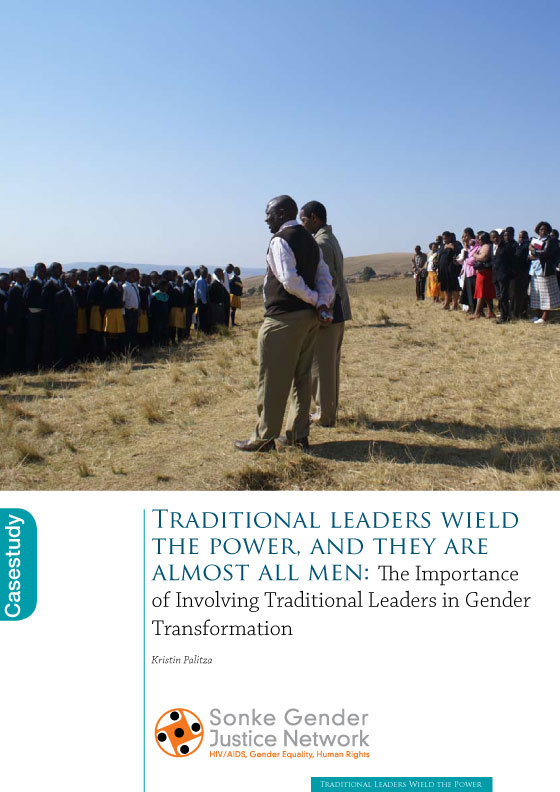- 021 423 7088
- info@genderjustice.org.za
- Whistleblower: 0800 333 059
In African society, the sphere of influence of traditional leaders continues to be strong, especially in rural areas. As heads of their communities, traditional leaders are key decision makers and the custodians of tradition, culture and rites. Civil society organisations have realised that if they want to tackle important social issues in rural communities on the continent, such as HIV, gender equality, violence or crime, they have to get traditional leadership on board, as a gateway to the people within the communities they want to reach.
A number of non-governmental organisations (NGOs), including South African Sonke Gender Justice Network, Ubuntu Institute, CARE International and Zambian Women For Change (WFC), work with traditional leaders on the continent on how to address gender-based violence, promote gender equality and reduce HIV/AIDS in their communities. Through the support of traditional leadership, they involve men (and women) to take action in their own homes and communities to end domestic and sexual violence, change their perception of masculinity and address HIV and other health-related issues. This case study provides an overview of the efforts made by organisatons in tackling harmful traditional practices across South Africa and other African countries by working together with traditional leaders in communities.


Sonke is a South African-based non-profit organisation working throughout Africa. We believe women and men, girls and boys can work together to resist patriarchy, advocate for gender justice and achieve gender transformation.
Please note that Sonke does not offer counselling or other support services to individuals. Click here for information on where to get help.
Sign up for the Sonke e-Newsletter to receive social justice news and views in your inbox.
Please see our Privacy Policy here.